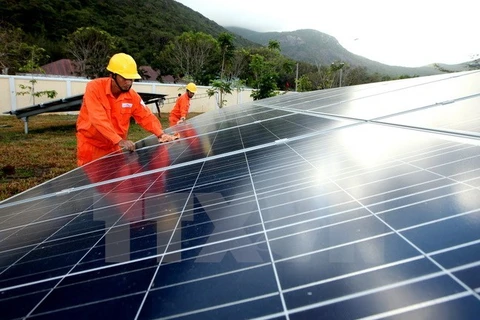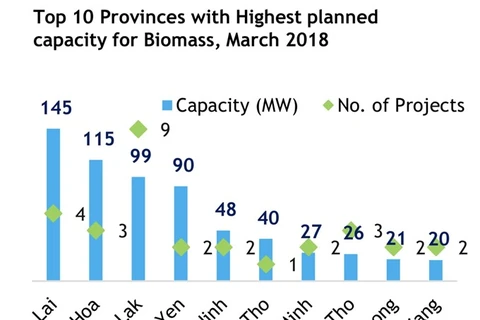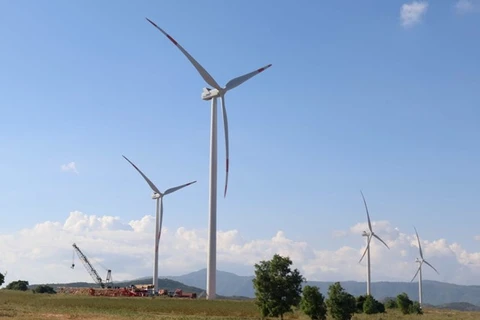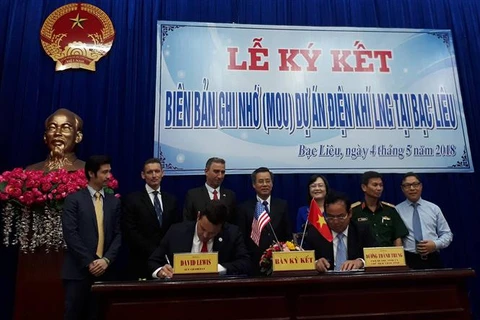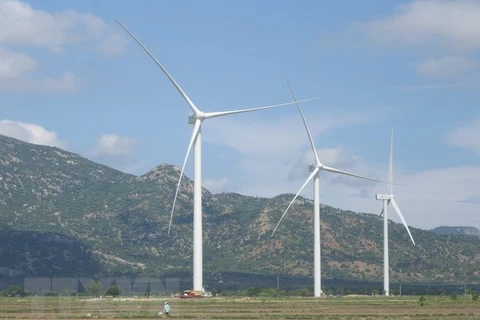HCM City (VNS/VNA) - Owners of shrimp-breeding ponds pay 50-200 million VND (2,200 – 8,800 USD) for electricity per hectare per crop, accounting for 10 percent of their total cost of aquaculture production.
Experts said using clean renewable energy could help the aquaculture sector in Vietnam sustainably develop while at the same time protecting the environment.
It could help ease the pressure on the national power grid and reduce CO2 emissions into the environment.
According to the Southern Power Corporation (EVNSPC), the demand for electricity from the aquaculture industry rose from 7,780MW in 2015 to 9,529MW last year but it had difficulty meeting it.
Lack of long-term plans for shrimp and fish breeding sectors and coordination mechanisms between electric power suppliers and environment management agencies has also hindered EVNSPC’s power supply to the aquaculture production.
Farmers use electricity provided for lighting to operate motors/engines and other equipment used in shrimp ponds, causing the power grids to be overloaded, affecting supply in the region, according to EVNSPC.
According to Nhu Van Can of the Ministry of Agriculture and Rural Development’s Aquaculture Production Department, aquaculture, especially shrimp farming, requires a lot of electricity.
Shrimp farms need power to operate motors to supply oxygen without which the creatures would die.
According to Nguyen Phuoc Duc, Deputy General Director of EVNSPC, since shrimp farms in the Mekong Delta and southern provinces are facing a shortage of electricity, renewables, especially solar energy, could be used to supply them, reducing their costs and helping promote the shrimp industry in the region.
EVNSPV has plans to integrate solar panels with engines/motors used in shrimp ponds in provinces where the industry is large.
EVNSPC has also provided technical support to shrimp farmers, enabling them to use electricity economically, effectively and safely.
"The development of solar and wind energy will help EVNSPV meet the demand for electricity for aquaculture and promote the industry," he said.
In 2018 EVNSPV has undertaken a pilot energy-saving project involving 161 households in the Mekong province of Soc Trang.
The project is helping these households save electricity by 15.2 percent or 658.4 million VND (roughly 29,000 USD) a year.
According to Tran Viet Ngai, President of the Vietnam Energy Association, a developing country like Vietnam is bound to face power shortages in the coming years.
But since the country has huge solar and wind energy potential, it would be necessary to use renewables to make up the electricity shortfall, he added.- VNA
VNA

